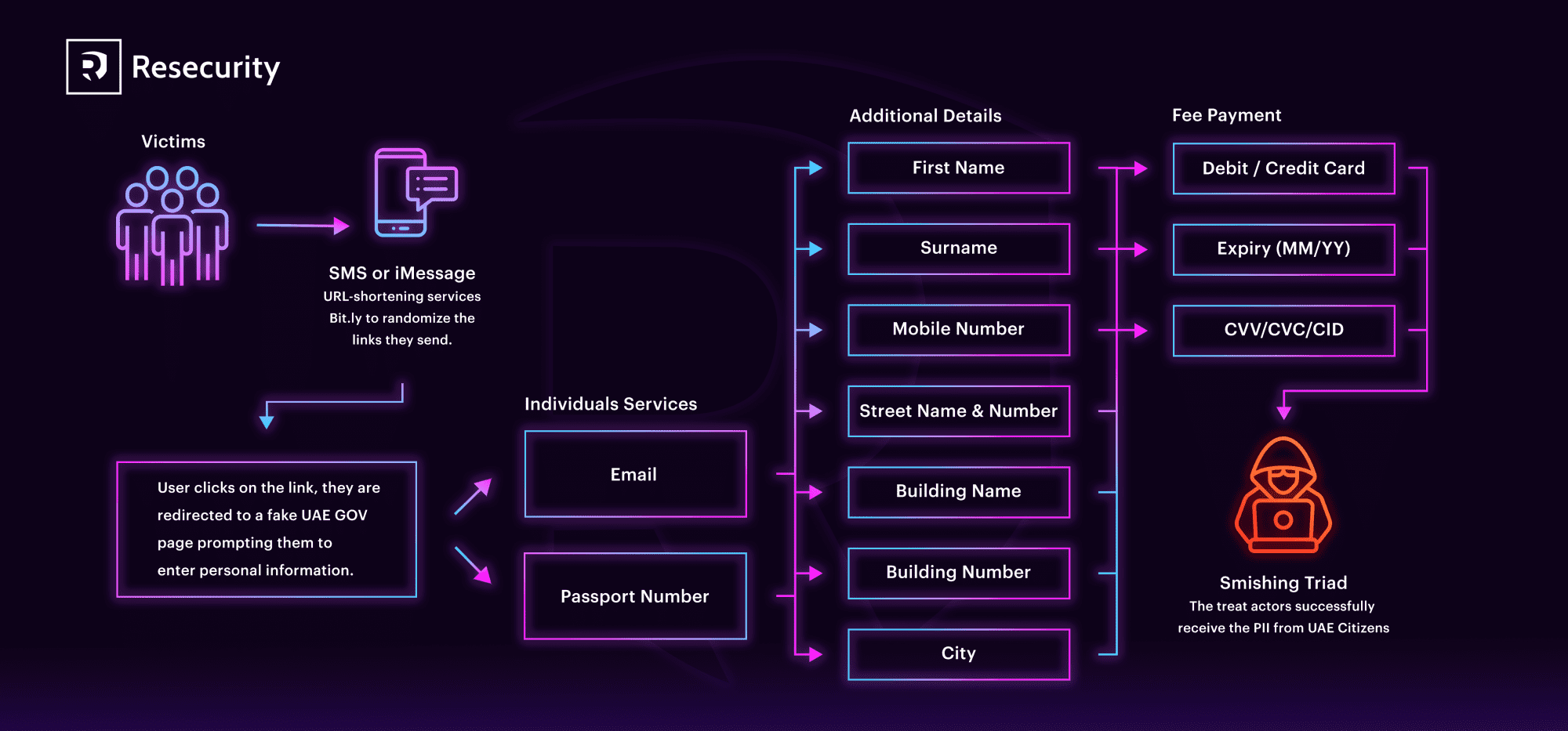
Image Credit: Resecurity
In a recent revelation, cybersecurity firm Resecurity has uncovered a sinister fraudulent campaign orchestrated by the notorious Smishing Triad Gang. This intricate web of deceit involves impersonating the United Arab Emirates Federal Authority for Identity and Citizenship. The gang has been sending malicious SMS messages masquerading as official communications from the General Directorate of Residency and Foreigners Affairs. This campaign specifically targets UAE residents and foreigners, leveraging the advanced technique of “smishing” – a formidable blend of phishing through text messages.

Imagine receiving an SMS that seems to come straight from a government agency, but in reality, it’s a trap set by skilled cybercriminals. The Smishing Triad Gang has perfected this art, sending out messages that contain malicious links. These links, often disguised using URL-shortening services, lead unsuspecting victims to fake websites. Once there, victims are prompted to enter personal information on what appears to be official authorization forms, complete with convincing branding. But this is just the start.
The gang’s strategy is devious yet effective. They’ve shifted their focus from postal service impersonation in the US, UK, and EU to now zeroing in on the UAE. Their method? Sending these crafted messages to mobile devices through SMS or iMessage, cleverly randomizing the links to protect their fake domains and hosting locations. The danger is real and immediate, with several harmful messages already sent to both Apple iOS and Google Android devices.
What makes this campaign particularly alarming is its specificity and timing. Many of the targeted individuals had recently updated their residence visas, suggesting the perpetrators might have access to sensitive information, possibly obtained through third-party data breaches or other illicit sources. This precision in targeting adds a layer of credibility to the messages, making them even more dangerous.
The outcome for victims who fall prey to this scheme is grave. Upon clicking the malicious link, they are redirected to a fraudulent webpage, cleverly designed to harvest personal and financial information. This information is not just used for identity theft but also to facilitate further fraud. In some cases, victims are even persuaded to transfer large sums of money, believing they are complying with official requests.
This campaign is a stark reminder of the evolving landscape of cyber threats. The Smishing Triad Gang’s ability to adapt and refine its tactics poses a significant challenge to cybersecurity efforts globally. Their use of sophisticated encryption techniques in their phishing lures and the strategic targeting of specific populations highlight the need for constant vigilance and proactive defense strategies.